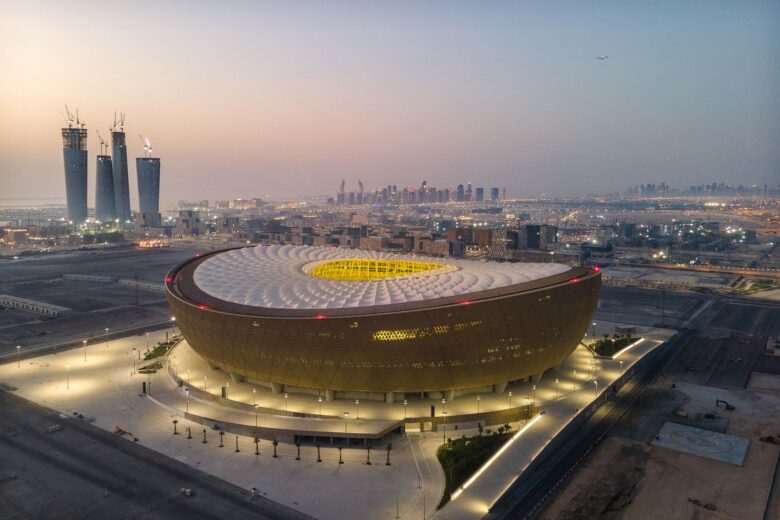As the Qatar World Cup approaches on November 20, the astonishing cost of hosting the tournament is causing controversy. The costs associated with this year’s tournament continue to balloon, eventually reaching $300 billion (approximately 42 trillion yen). This is about 30 times the cost of last summer’s Tokyo Olympics, or about 40% of Japan’s national budget, and the bills are flying wildly. The human rights issues of the workers who are suffering behind the scenes continue to smolder, and the ripples surrounding the tournament continue to grow.
The money surrounding the World Cup in Qatar is all over the map.

The Khaleej Times, a Dubai-based newspaper in the United Arab Emirates (UAE), reported, “The total infrastructure spending for the World Cup is estimated at a staggering $300 billion. This possibility has been pointed out in the Western media and other media for some time, but it is now certain that the cost will balloon to astronomical figures before the opening of the tournament.
This is about 30 times the 1.4238 trillion yen spent on last summer’s Tokyo Olympics, or about 40% of Japan’s national budget of 110.3 trillion yen for fiscal year 2022, which is a huge amount of money.
The paper analyzed the spending, saying, “More than $6.5 billion (910 billion yen) was spent on the construction of a glittering new stadium, and $36 billion (5 trillion yen) was spent on a driverless metro system. Huge sums of money have also been spent on other infrastructure improvements. The inexhaustible financial resources were reported sarcastically, “Qatar’s abundance of natural gas gave it a bottomless purse to pay for the soccer festival.
Such tremendous spending has been controversial, with The Economist reporting, “The stadiums will be set up, but not the beds [for the people]. Some local residents are questioning whether the tournament is worth the $300 billion,” and are complaining that the money is being spent only on the World Cup and related infrastructure, and that local residents, mainly immigrants, will not benefit. The human rights issues surrounding the tournament are also becoming increasingly serious.
Human rights issues surrounding the World Cup are also becoming increasingly serious. Since the Guardian reported that more than 6,500 migrant workers died and 37 were involved in the construction of the stadiums after the World Cup was decided, criticism has poured in from around the world. As the opening of the World Cup draws near, human rights movements have been active locally, with thousands of migrant workers holding a rally in Doha on November 14, and a large demonstration by human rights groups scheduled for November 19 near the Qatari embassy in the United Kingdom. Kozo Tajima, chairman of the Japan Football Association, also commented, “We are taking a stand against human rights issues and discrimination. We must use the World Cup as an opportunity to improve the facts of what is happening in Qatar.
The curtain is finally rising on the first World Cup to be held in the Middle East.


コメント